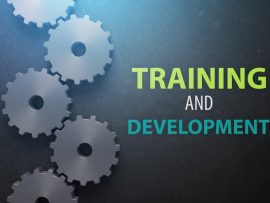employment newsInventory specialists are essential in logistics and supply chain management, maintaining inventory levels efficiently. Their unique challenges and rewards require specific skills, education, and qualities, making them a challenging yet rewarding career path. Understanding the Role of an Inventory Specialist Inventory specialists are responsible for managing, ordering, and overseeing inventory in warehouses, retail locations, and production facilities. Their duties include tracking inventory levels, ordering supplies, coordinating with suppliers, and forecasting demand to prevent overstocking or stockouts. They also play a pivotal role in implementing inventory management systems and practices that optimize operational efficiency and reduce costs. Essential Skills and Qualifications 1. Educational Background Typically, a career as an inventory specialist requires at least a high school diploma, but increasingly, employers prefer candidates with a bachelor's degree in business, logistics, supply chain management, or a related field. Higher education can provide a solid foundation in the principles of inventory management, logistics, and operations planning. 2. Analytical Skills Inventory specialists must possess strong analytical skills to accurately forecast demand, analyze inventory levels, and make data-driven decisions. Proficiency in statistical analysis and the ability to interpret complex data sets are crucial for optimizing inventory management. 3. Attention to Detail Given the nature of the job, being detail-oriented is non-negotiable. Inventory specialists must be able to track and manage numerous items, often with very similar characteristics, without error. 4. Technical Proficiency A command..
Read MoreThis blog provides essential skills and courses for aspiring inventory management specialists, emphasizing the importance of analytical prowess, strategic thinking, and technological proficiency in this dynamic field for a rewarding career. Core Skills for Inventory Management Specialists Analytical and Critical Thinking: At the heart of inventory management lies the ability to analyze data, forecast demand, and make informed decisions to optimize stock levels. Critical thinking enables specialists to solve complex problems, identify cost-saving opportunities, and improve operational efficiencies. Technological Proficiency: Today's inventory management relies heavily on technology. Familiarity with inventory management software, data analytics tools, and the basics of enterprise resource planning (ERP) systems is crucial. An understanding of emerging technologies like AI and blockchain can also provide a competitive edge. Attention to Detail: The devil is often in the details when it comes to managing inventory. Precise tracking, accurate record-keeping, and meticulous auditing are vital to prevent discrepancies and ensure the integrity of inventory data. Communication and Collaboration: Inventory management is not a siloed function; it requires constant interaction with suppliers, vendors, sales teams, and other departments. Effective communication and the ability to collaborate are essential for coordinating operations and achieving business goals. Recommended Courses and Certifications Certified in Production and Inventory Management (CPIM) The CPIM certification, offered by ASCM, focuses on demand management, supplier planning, material requirements planning, and capacity planning, enhancing inventory management understanding in supply chain..
Read MoreThis blog discusses strategies for improving inventory turnover, enhancing operational efficiency, and boosting profitability in businesses dealing with physical products, indicating efficient management and healthy demand. Understanding Inventory Turnover Before diving into strategies, it's important to grasp what inventory turnover entails. It is calculated by dividing the cost of goods sold (COGS) by the average inventory during a period. Improving turnover means either increasing sales, reducing inventory levels, or both. This balance is crucial for minimizing holding costs and maximizing sales opportunities. Strategies for Improving Inventory Turnover Accurate Demand Forecasting Implementation: Utilize historical sales data, market trends, and predictive analytics to forecast demand more accurately. Adjust inventory levels based on seasonal variations and market conditions. Impact: Reduces the risk of overstocking or stockouts, ensuring that inventory levels are closely aligned with customer demand. Efficient Inventory Management Implementation: Adopt inventory management systems that provide real-time data and insights, enabling better tracking of stock levels, order processing, and replenishment. Impact: Increases operational efficiency, reduces excess inventory and ensures timely replenishment of high-demand products. Supplier Relationship Management Implementation: Develop strong relationships with suppliers for flexible inventory practices, such as just-in-time (JIT) inventory, which allows for frequent, smaller orders based on demand. Impact: Enhances supply chain responsiveness to changes in demand, reducing the need for large inventory holdings and associated costs. Diversifying Suppliers Implementation: Avoid reliance on a single supplier by diversifying supply sources...
Read MoreIn the rapidly evolving landscape of the digital age, upskilling has become a cornerstone of organizational success. The relentless pace of technological advancements necessitates a proactive approach to employee development, ensuring that teams remain agile, adaptable, and equipped with the skills needed to thrive in a digitalized world. Let's explore how upskilling is reshaping employee development programs and contributing to the overall growth of businesses. Continuous Learning Culture: Upskilling represents a departure from traditional, sporadic training programs. In the digital age, employee development is an ongoing journey, fostering a continuous learning culture within organizations. This shift acknowledges that skills become obsolete faster than ever before, and the key to staying ahead lies in embracing a mindset of perpetual learning. Digital Learning Platforms: Digital learning platforms have emerged as powerful tools in the upskilling revolution. From e-learning modules to interactive courses and virtual classrooms, these platforms offer flexible, accessible, and personalized learning experiences. Employees can engage with content at their own pace, promoting a more efficient and tailored approach to skill acquisition. Personalized Learning Paths: One size no longer fits all when it comes to employee development. Upskilling programs are becoming more personalized, taking into account individual strengths, weaknesses, and career aspirations. By tailoring learning paths to the unique needs of employees, organizations ensure that skills acquired align closely with the demands of their roles and the organization's strategic objectives. Integration..
Read MoreIn the course of a career, many individuals find themselves in jobs that may feel monotonous or routine. While monotony can be challenging, maintaining motivation and engagement is crucial for job satisfaction and overall well-being. Here are some tips to help employees stay motivated in monotonous jobs and foster a sense of engagement. Find Meaning in Your Work #PurposefulWork #JobMeaning #CareerEngagement Even in seemingly monotonous roles, there is often an underlying purpose or impact on the larger organization. Reflect on how your tasks contribute to the overall goals of the company. Understanding the significance of your work can add a sense of purpose, making it easier to stay motivated. Set Personal Goals #CareerGoals #PersonalDevelopment #EmployeeMotivation Create personal goals related to your job. These goals can be skill-based, such as learning a new software or improving efficiency in a particular task. Having specific objectives provides a sense of direction and accomplishment, breaking the monotony of day-to-day activities. Seek Learning Opportunities #ContinuousLearning #SkillDevelopment #ProfessionalGrowth Look for opportunities to expand your skill set. Whether it's attending workshops, taking online courses, or participating in training sessions, continuous learning adds variety to your routine. Acquiring new skills not only breaks the monotony but also enhances your professional development. Break Tasks Into Smaller Steps #TaskManagement #ProductivityTips #Efficiency Breaking down monotonous tasks into smaller, manageable steps can make them more approachable. Focus on completing one step at..
Read MoreSolutions consulting is a dynamic and challenging sector that calls for a wide range of abilities, from technical proficiency to strategic thinking and client management. Prospective solution consultants need to keep changing to keep up with the demands of this position. This blog examines vital tools and programs that may help aspiring consultants develop their abilities and progress in their professions. Key Areas for Development 1. Technical Proficiency Understanding the tools and technologies relevant to your industry is crucial. Solutions consultants should be proficient in: Software and Systems: Familiarity with CRM systems, ERP software, and industry-specific tools. Data Analysis: Ability to interpret data to make informed decisions and recommendations. 2. Strategic Thinking Solutions consultants must grasp the bigger picture, understanding how different parts of a business interact and how changes can impact overall operations. 3. Communication and Interpersonal Skills Effectively communicating ideas and building relationships with stakeholders are essential skills for a consultant. Recommended Courses and Certifications For Technical Skills Certified Information Systems Auditor (CISA): Ideal for consultants focusing on information systems, offering expertise in managing vulnerabilities and ensuring compliance. Microsoft Certified: Dynamics 365 + Power Platform Solution Architect: This certification is perfect for those who want to master Microsoft's widely used CRM and ERP solutions. For Analytical Skills Data Analysis and Presentation Skills: The PwC Approach Specialization (Coursera): Offers robust training in data analysis, from understanding the basics to..
Read MoreThe rise of decentralized finance (DeFi) has created exciting opportunities for blockchain architects, whose expertise is essential in designing, building, and scaling blockchain-based financial solutions. DeFi offers new avenues for financial inclusion, transparency, and innovation, and blockchain architects play a pivotal role in developing these platforms. This blog explores critical opportunities for blockchain architects in the rapidly expanding DeFi space. 1. Designing Scalable and Secure DeFi Platforms Blockchain architects are responsible for creating robust and scalable infrastructures for DeFi platforms that can handle increasing user demand. They design layer-2 scaling solutions, such as rollups and sidechains, to optimize network performance and reduce transaction fees. Example: Uniswap and Aave leverage layer-2 technologies to improve transaction speeds and user experience while minimizing gas fees. Opportunity: Blockchain architects with expertise in scalability solutions are in high demand as platforms seek to accommodate growing user bases without compromising efficiency or security. 2. Building Cross-Chain Interoperability As the DeFi ecosystem grows, platforms that operate seamlessly across multiple blockchains are needed. Blockchain architects design cross-chain bridges and interoperability protocols that allow asset transfers and data exchanges between networks such as Ethereum, Binance Smart Chain, and Polygon. Example: Architecting a cross-chain protocol enables users to transfer assets like Bitcoin to Ethereum-based DeFi platforms, enhancing liquidity and user flexibility. Opportunity: Architects skilled in interoperability development will be essential in expanding the DeFi ecosystem by enabling multi-chain compatibility. 3...
Read More







